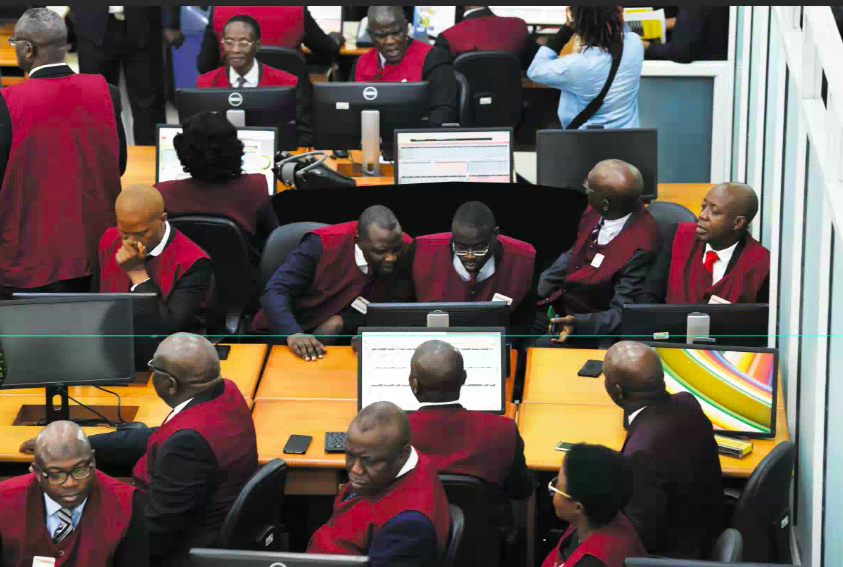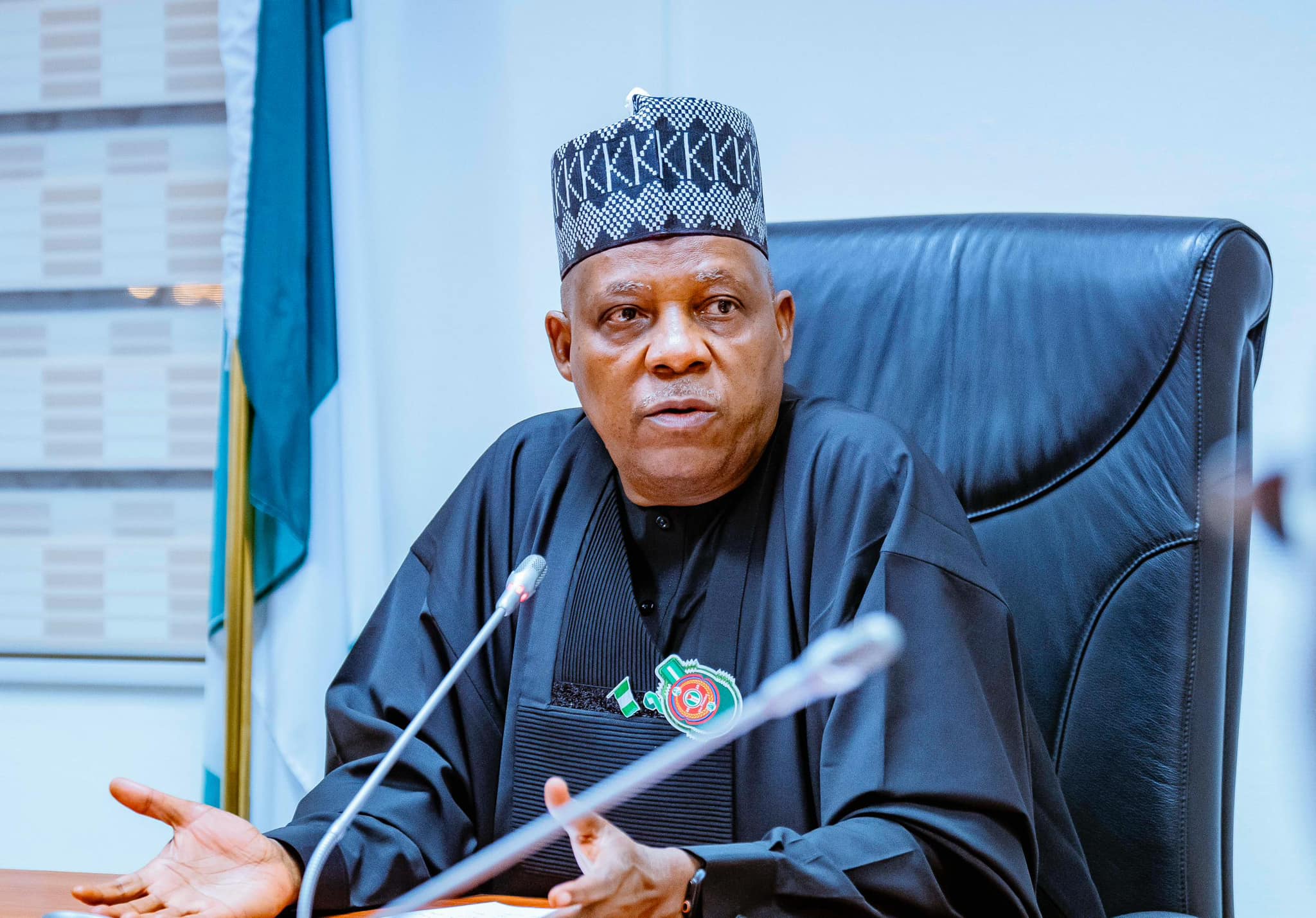•Describe FG’s Nigeria’s First policy as rallying call for economic revival
Dike Onwuamaeze
The Manufacturers Association of Nigeria (MAN) and the United Nations Industrial Development Organisation (UNIDO) have bemoaned the declining contribution of the manufacturing sector to Nigeria’s Gross Domestic Product (GDP) over the past decade and what they described as the country’s shift from production to consumption.
They made these observations yesterday in Lagos, at the opening ceremony of a 3-Day Made-in-Nigeria Exhibition (MiNE) with the theme “Nigeria First: Prioritising Patronage of Made-in-Nigeria,” which was part of the activities marking the 53rd Annual General Meeting (AGM) of MAN.
The President of MAN, Mr. Francis Meshioye, in his welcome address, decried the continued shrinking of the Nigerian manufacturing sector and the troubling shift of the Nigerian economy from production to consumption.
Meshioye, however, described the Nigeria First policy, which advocates for prioritised patronage of Made-in-Nigeria products, as a rallying call that speaks directly to Nigeria’s economic survival and long-term transformation.
He said: “Recent developments in the economy remind us of the urgency of this call.
“In particular, the figures from the rebased Nigerian Gross Domestic Product (GDP), published by the National Bureau of Statistics, are striking.
“It shows that industry’s share of GDP declined from 27.65 per cent in the 2010 base year to 21.08 per cent under the 2019 rebased structure.
“Moreover, the manufacturing sector’s average 5-year performance is negative (–0.76 per cent), particularly between 2019 and 2024, whilst sectors such as services and agriculture expanded!
“This underscores a deeper concern. Nigeria’s industrial base continues to shrink. In essence, the rebased GDP figures signal a troubling shift from production to consumption; and from production to services and informal value creation.
“This is definitely not sustainable.”
Meshioye argued that if Nigeria “will build a resilient, inclusive and forward-looking economy that investors will have confidence in, we must re-industrialise, and that process must begin with deliberate support for local manufacturers.”
He explained that “The ‘Nigeria First’ agenda is not about closing our doors to the world; it is about opening the right doors to Nigerian-made solutions, Nigerian jobs, and Nigerian ingenuity.”
He also called for a legislation that would codify the prioritisation of Made-in-Nigeria in legal framework with institutionilised mechanism that would ensure full implementation, enforcement and monitoring of the execution of Nigeria First policy with provisions for consequences for non-compliance.
“We should eliminate the prevalence of selective compliance. Now is the time to create the policy framework for transitioning the Nigeria First policy from executive pronouncements to legislative imperative and ultimately to unfettered and bold implementation.
“We cannot continue to allow policy inertia to undermine our development potential,” Meshioye said.
He added that beyond policy enforcement, Nigeria, “must also establish a functional, independent compliance agency or institution tasked with auditing patronage levels, recommending corrective action, and publicly disclosing performance across Ministries, Departments and Agencies of government.
“Let it be known which institutions are genuinely driving local economic empowerment and those that are not. And we should take evident and far reaching corrective and disciplinary measures against the latter. Only then can we truly align government spending with our industrial policy goals.”
The president of MAN also stated that corporate Nigeria also has a responsibility to align with the “Nigeria First” vision of Mr. President, arguing that “multinationals, conglomerates, and large procurement organisations must look within for raw materials, packaging, and inputs.
“Many of these are already produced locally to global standards and should not be overlooked due to legacy procurement practices or cost assumptions that no longer hold true when long-term economic value is properly considered.”
Speaking in the same vein in his keynote speech as the special guest of honour at the MiNE, the UNIDO Representative in Nigeria, Amb. Philbert Abaka Johnson, said Tinubu’s Nigeria First policy offered a clear pathway to scale domestic patronage of Nigerian products and services.
Johnson, therefore, emphasised that “the call to ‘prioritise patronage of Made-in-Nigeria’ must go beyond rhetoric and patriotic sentiments.”
He said that the call, “is a strategic economic proposition that can only succeed with deliberate, coherent and coordinated action at all levels of Nigerian society.
“‘Nigeria First’ is therefore not about isolation. It is about intelligent integration. It is about ensuring that Nigerian producers have a fair chance to compete, to scale and to contribute meaningfully to national development.”
Johnson said Nigeria First was about ensuring that every public procurement decision, every corporate purchase and every consumer choice help build local capacity and strengthen the national value.
He said: “It means efficient production, responsible consumption, quality products and value addition.”
He said that UNIDO firmly believed that strong manufacturing base is the bedrock of sustainable development.
“Yet, as rightly noted by the president of MAN, the sector’s share of the GDP has declined over the past decade.
“To reverse this trend, our intervention must be sound, deliberate, coherent, and coordinated across following four interlinked drivers of competitiveness: infrastructure and energy reliability, access to finance, skills and technology, market access and trade facilitation,” Johnson said.
He also recommended that institutional monitoring, periodic evaluation, transparent reporting and capacity development would ensure that local content meant high-quality content.
“When Nigerian products are trusted, they will be patronised and not just at home but globally,” Johnson said.


